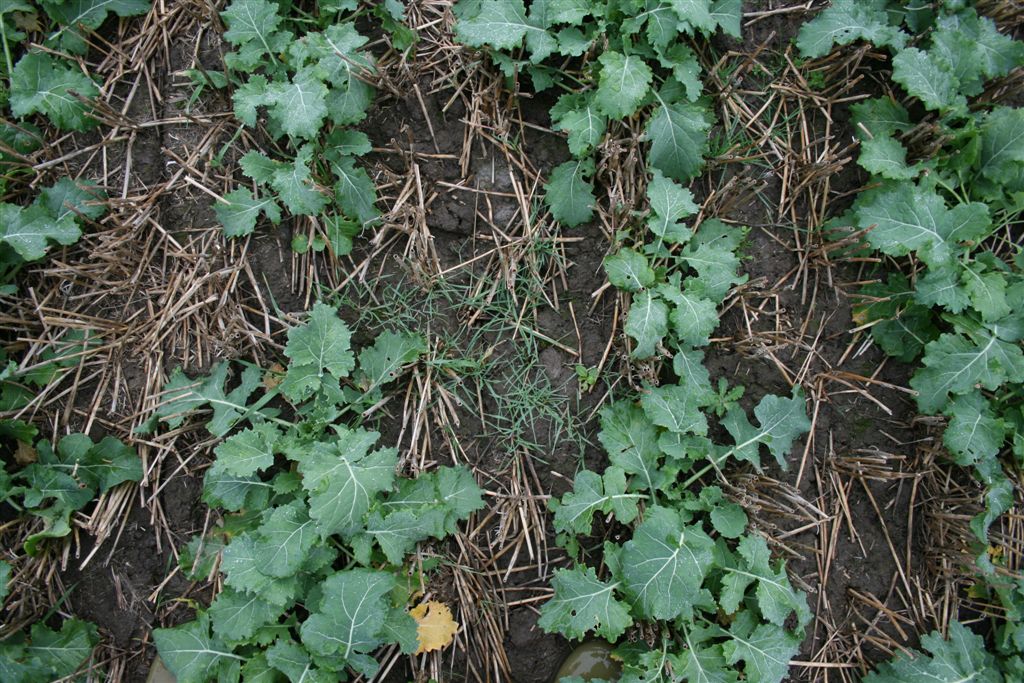
It’s cold enough and moist enough for applications of propyzamide to start in winter oilseed rape, but growers have up until the end of January if the windy and wet conditions prevent spraying.
"Although the soil temperatures are now low enough and the soil moistures are just right in many areas, growers don’t need to rush to get their residual-acting propyzamide herbicides, Flomide2 and Dennis, on. It is more important to wait for appropriate spraying conditions before applying them. The imminent weather forecast is for high winds and rain and this will put a stop to any spraying, but as soon as conditions improve propyzamide can be applied. You have up until the end of January and all care needs to be taken with regard to risk of water pollution," says Dr. David Stormonth, Technical Manager for Interfarm UK Ltd.
Propyzamide, when applied under the correct conditions, will give good control of black-grass, cereal volunteers, brome, wild-oats and annual meadow-grass and certain broad-leaved weeds such as chickweed. "Good levels of soil moisture are needed to allow the herbicide to penetrate the top layers of the soil profile. Propyzamide binds strongly to soils and doesn’t tend to leach and so light rainfall after application aids soil penetration, but avoid water-logged soils or areas at risk from water pollution. Optimum weed control with Flomide2 or Dennis also requires cool conditions, so that the propyzamide can penetrate and persist in the top 2 cms of the soil surface. Soil temperatures of 8ºC or less are optimum and we have reached this now. Propyzamide works well at lower temperatures, and, as propyzamide degradation in soil is temperature-related, cooler temperatures mean longer residual persistence. When it is cold, it takes longer for symptoms to be seen."
David points out that growers may want to tank-mix Flomide2 and Dennis, with a contact graminicide. "The combination of propyzamide and a fop/dim graminicide often results in surprisingly good control, even if the black-grass is fop/dim resistant. This mix needs careful timing with regard to weed size, but it appears to enhance grass-weed control. A suitable fungicide can be added to this mixture, optimising spray application costs."
"Both Flomide2 and Dennis, are high quality propyzamides, manufactured specifically for Interfarm. So growers can rest assured that they will mix easily and spray well."
"Another consideration when applying propyzamide is crop stage. The label says that propyzamide can be applied from the 1st October onwards when the winter rape crop has three true leaves up until the end of January. When the crop has three true leaves, the crop’s roots will be well below the herbicide layer and crop selectivity will be good. If the autumn does close in or spraying conditions are not right, you have right up to the end of January to tackle weeds in rape," says Dr. Stormonth.
Propyzamide is available from Interfarm as Flomide2 (400g/L SC) and Dennis, (50% WP). Both are recommended in winter oilseed rape, winter beans and a wide range of other crops for the control of cereal volunteers, annual meadow-grass, black-grass, brome, wild-oats, chickweed, bindweed, fat hen, redshank, small nettle, speedwells and black nightshade. Dennis is recommended at 1.7 kg or 1.4 kg/ha and Flomide2 at 2.1 l/ha or 1.71 l/ha depending on weed species.
